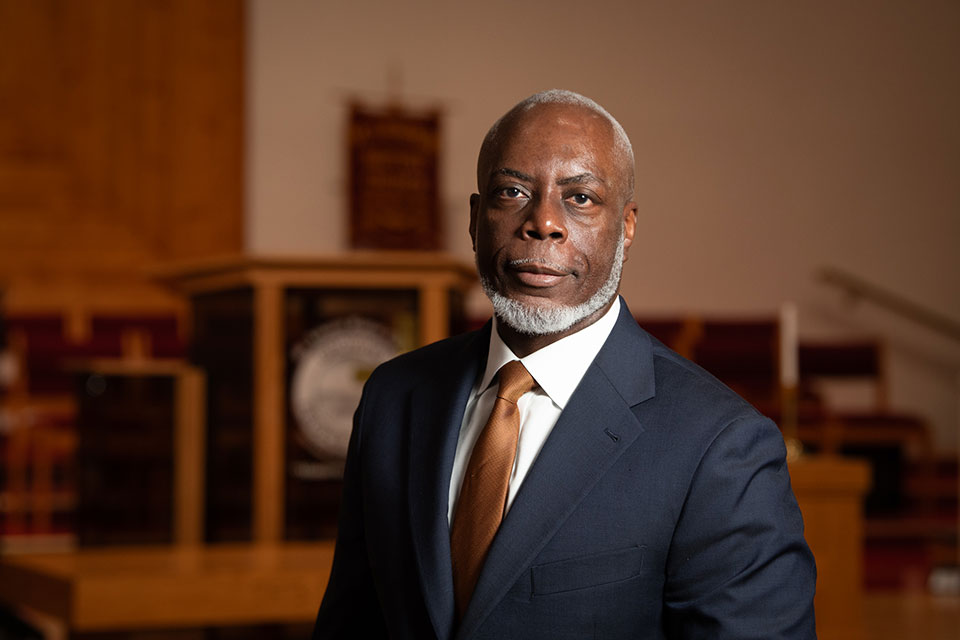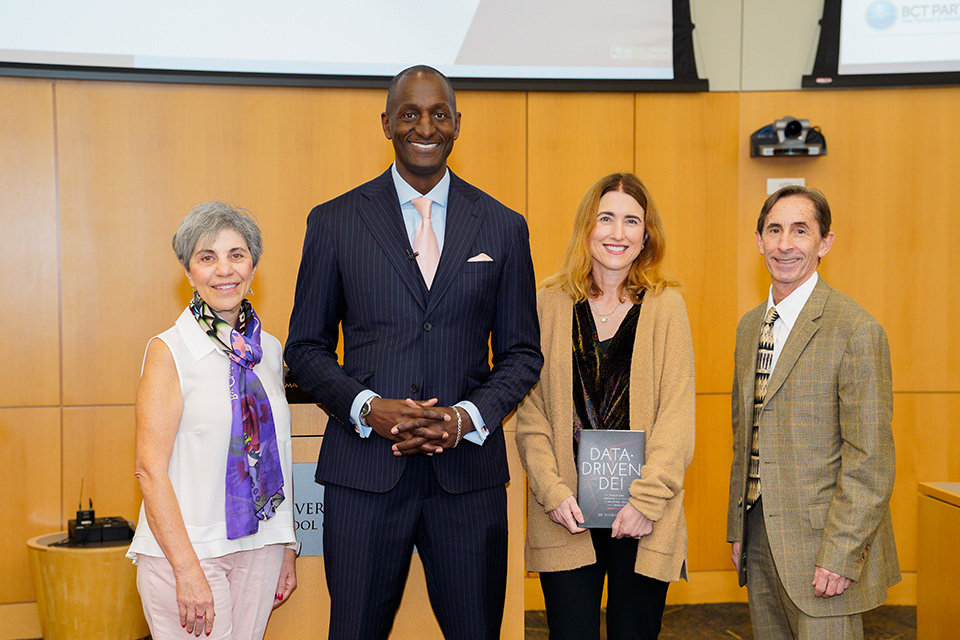PATIENTS Program Receives $500K to Tackle Health Inequities
PATIENTS Program is collaborating with Coppin State University and Xavier University of Louisiana College of Pharmacy.

By Emily Chappell
September 14, 2023
The U.S. Food and Drug Administration’s Office of Minority Health and Health Equity (FDA OMHHE) has awarded a $500,000 cooperative agreement to the PATIENTS Program at the University of Maryland School of Pharmacy in partnership with Mount Lebanon Baptist Church and two historically black colleges and universities: Coppin State University’s Helene Fuld School of Nursing and College of Allied Health in Baltimore and Xavier University of Louisiana College of Pharmacy in New Orleans.
The Racial and Ethnic Minority Acceleration Consortium for Health Equity focuses on strengthening and advancing minority health and health equity-focused research, outreach, and communications as well as supporting the training and mentoring of students, fellows, and researchers from diverse communities.
“Our project’s focus is to advance equity in clinical trials research and to promote equity in voices by engaging the communities we serve,” says Claudia Baquet, MD, MPH, a member of the PATIENTS Program steering committee. “Being included in this important and novel consortium to accelerate health equity and health disparities research and solutions is as important as it is exciting.”
The consortium’s two-prong approach will focus on advancing minority health and health equity-focused research, outreach, and communications. It will also support training and mentoring of health professions students, fellows, and researchers at both Coppin and Xavier who are from diverse backgrounds.
“Being part of the FDA OMHHE Racial and Ethnic Minority Acceleration Consortium for Health Equity provides the opportunity for our advanced practice and doctoral students to participate in initiatives aimed at advancing minority health and health equity-focused research, outreach, and communications. The project will be an excellent model of the efficacy and need for interdisciplinary collaborative practices,” says Joan Sylvia Tilghman, PhD, RN, CRNP, WHNP-BC, CNE, interim dean of the College of Health Professions at Coppin State University. “Our students consistently demonstrate scholarship in practice, and this initiative provides the formative elements to enhance faculty and student research and implement best practices that will impact the community. We have a cadre of students and faculty who will bring our energy, commitment, and pursuit of excellence to the project.”
The first phase of this project will develop a piloted curriculum for pharmacy and nursing advanced students and faculty at Coppin and Xavier.
In Phase 2, the pilot project and program will be implemented and will support ongoing activities that work to expand and reinforce outreach for FDA OMHHE’s community engagement and communications with historically underserved members of the public.
“I am critically aware of the breadth of health disparities and inequities in racial and ethnic minority patients, families, and communities. Participation with the University of Maryland School of Pharmacy on the FDA OMHHE Racial and Ethnic Minority Acceleration Consortium for Health Equity has the potential to address longstanding disparities and inequities through training and mentoring for HBCU pharmacy and students, fellows, and faculty and through community engagement of Black or African American communities,” said Kathleen Kennedy, PharmD, Malcolm Ellington Professor of Health Disparities Research and dean of the College of Pharmacy at Xavier University of Louisiana.
Mount Lebanon Baptist Church’s role will be to work with the community to develop evidence-based strategies to address barriers to clinical trial diversity. This will help increase transparency and trustworthiness in sponsors and researchers and increase willingness to participate in trials for African Americans.
The initial stakeholder focus will be on urban Black residents or African Americans in the Baltimore metro region and in rural areas and small towns in Southern Maryland and on health professions students in Maryland and New Orleans. By the second year, the goal is to expand the population and geographic focus to underrepresented communities throughout the rest of the United States.
“The important focus on engagement of Black or African American communities and others in pilot research is significant to define how to address trustworthiness and transparency concerns which impede diversity and inclusion of Black or African Americans and others in clinical trials,” Kennedy added. “Our partnership on training and community engagement aspects of the cooperative agreement will provide the potential for acceleration of health equity research and actions that will result in tangible benefits and outcomes to communities, in science, and the nation.”



